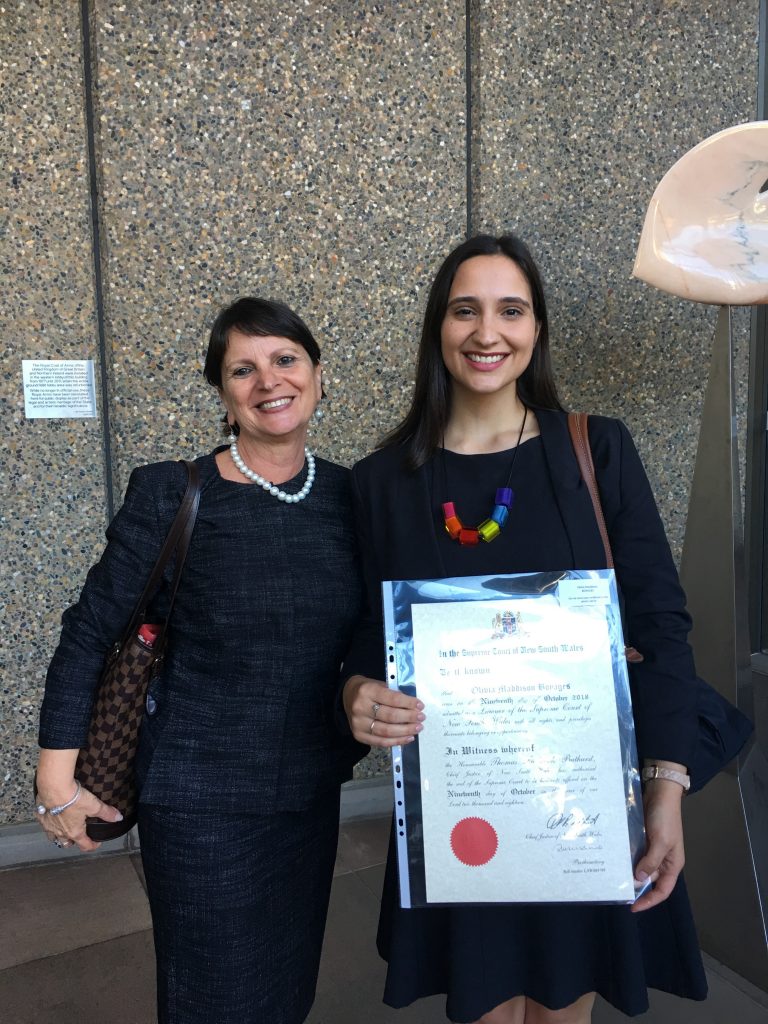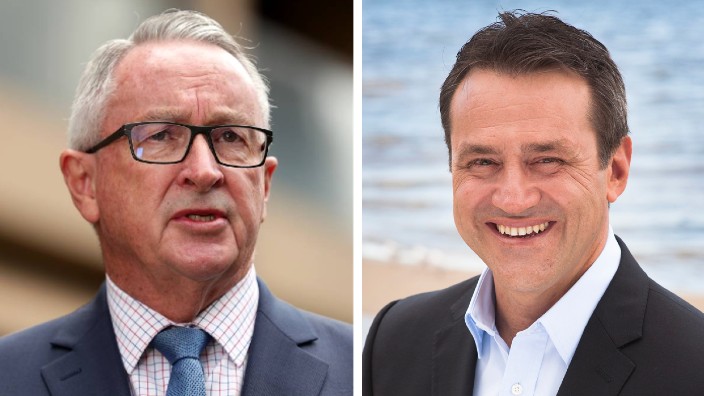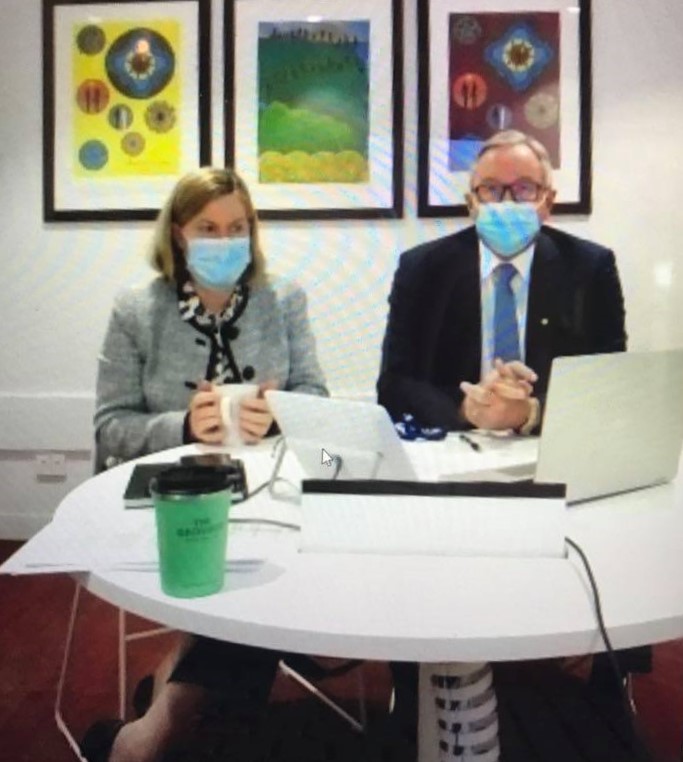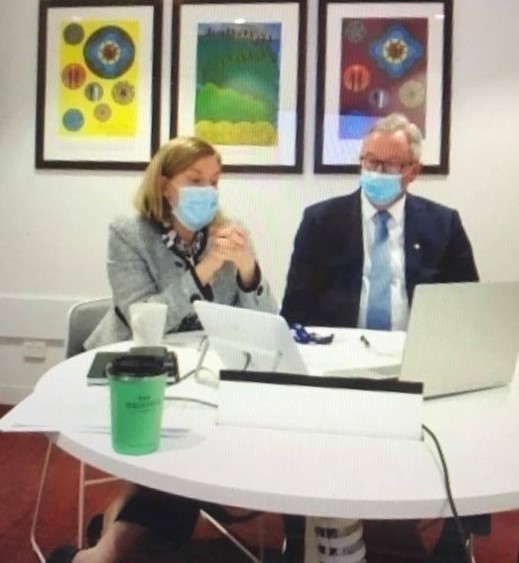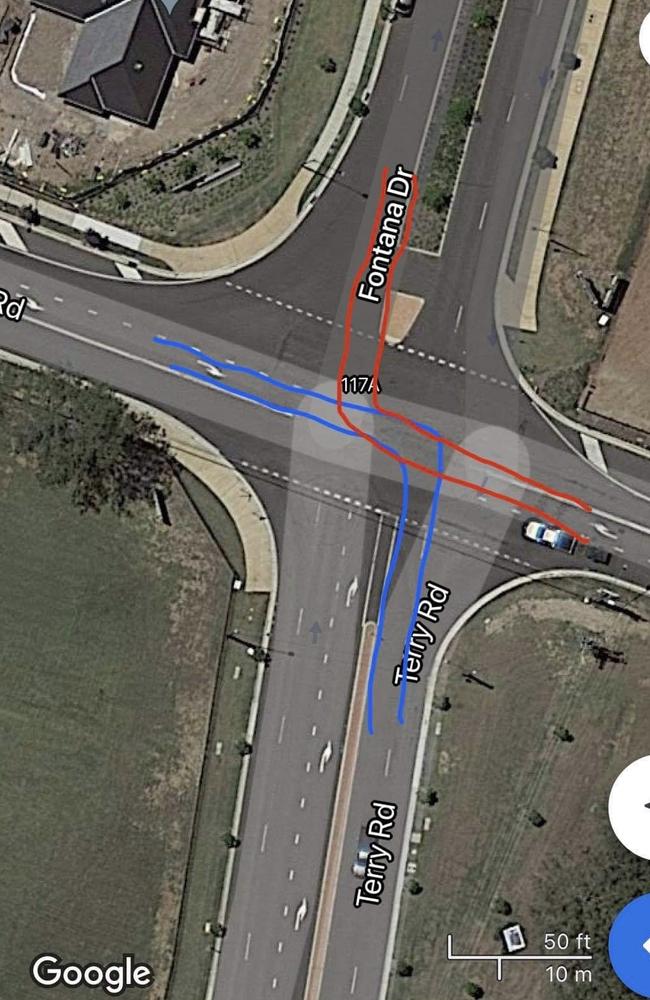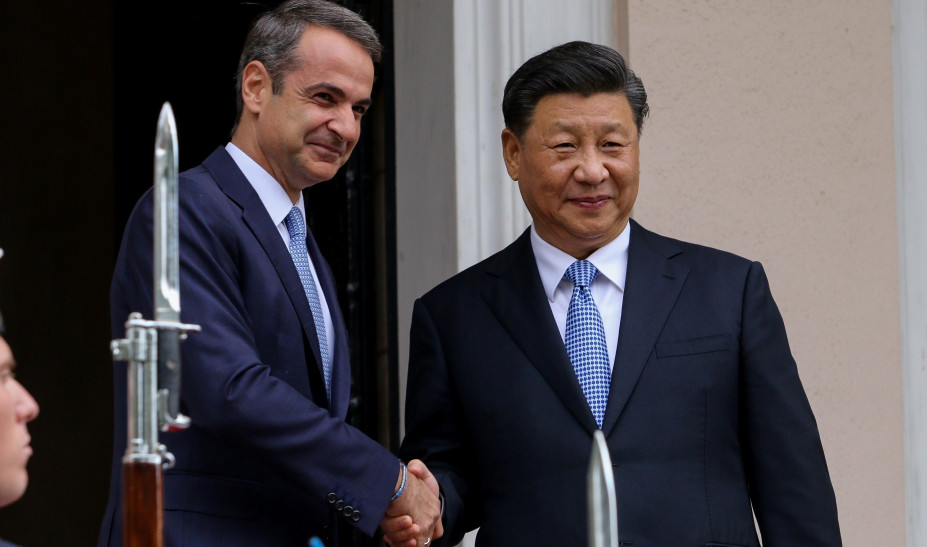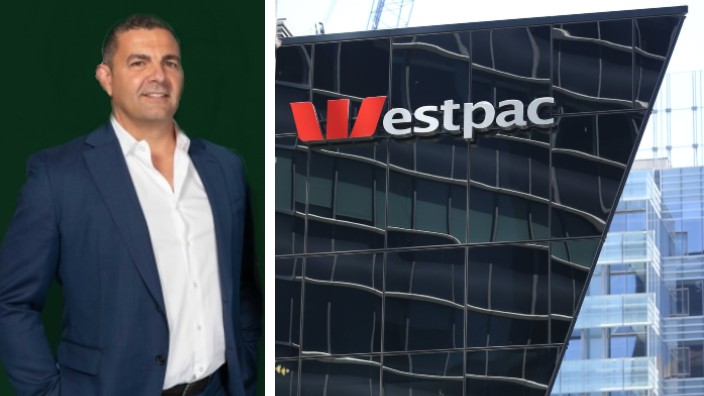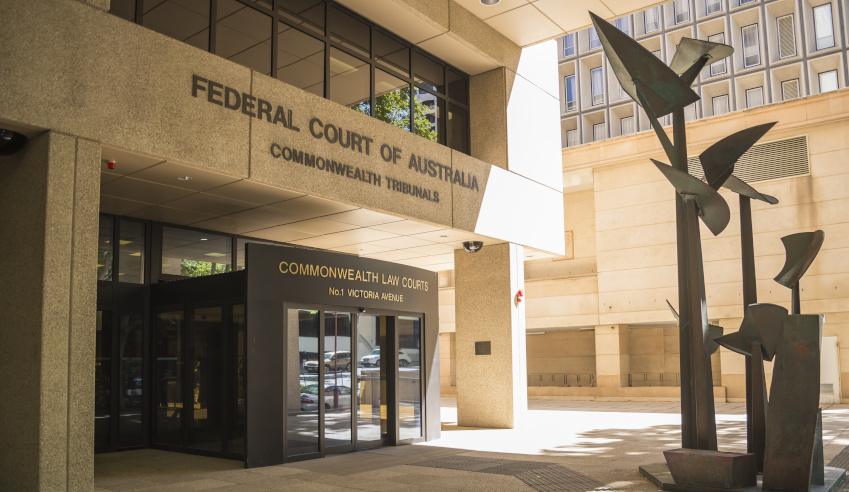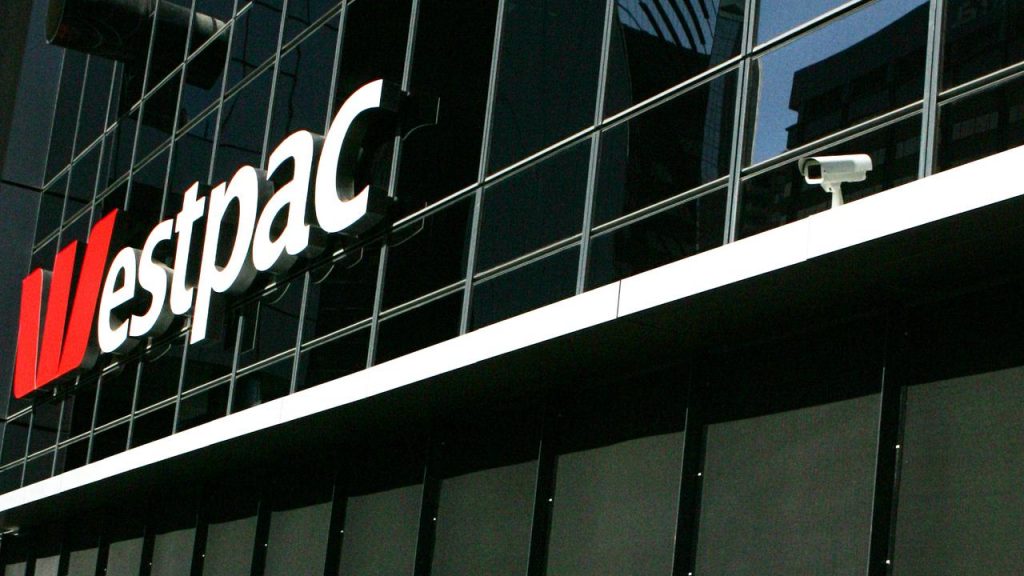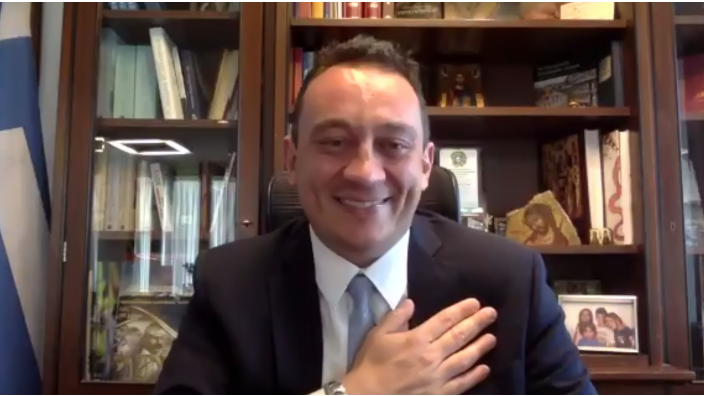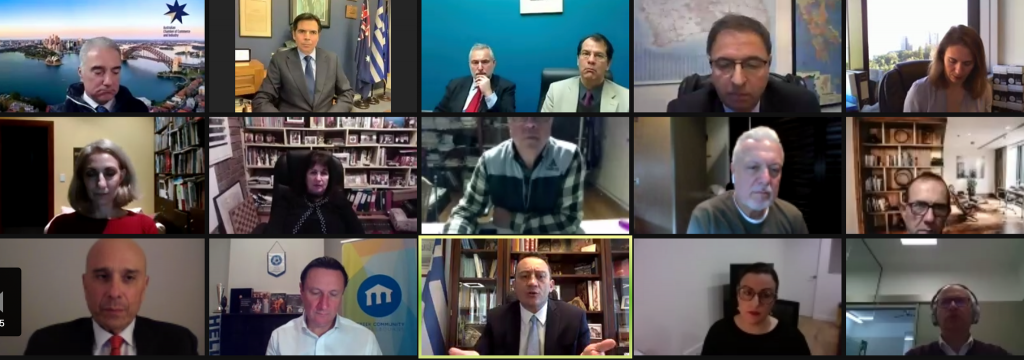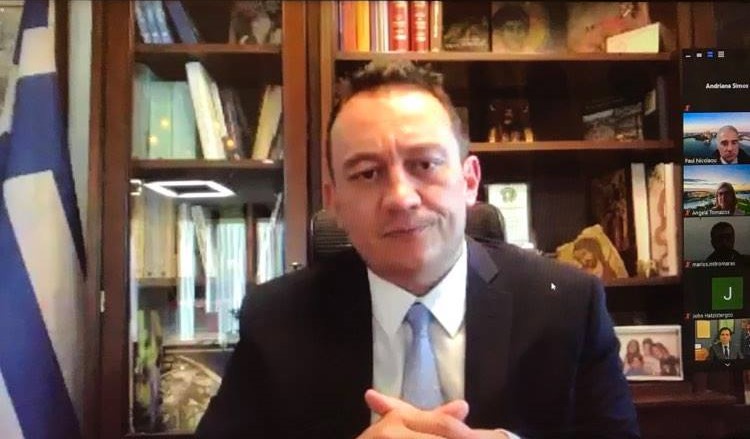By Ilias Karagiannis.
The Deputy Minister of Tourism in Greece, Sofia Zacharaki, expects a noticeably better tourist season in 2021, as she reveals in her exclusive interview with The Greek Herald.
Mrs Zacharaki states that the “key to the success of Greek tourism in the new era is the factor of special forms of tourism and the emphasis on the many and different experiences of our guests in Greece.”
At the same time, she sends a message of support to our community, emphasising that “Greece and Australia are countries with strong ties, thanks to the dynamic presence of the Greek diaspora.”
In a difficult season, due to the pandemic, we asked Mrs Zacharaki for her assessment of how Greek tourism will go.
“It is a fact that Greek tourism has opened, and it has opened safely just as we have repeatedly pledged that it will. Not only about when but also about how! On May 15, 2021 we set sail and we are on a course that we know has challenges,” she tells The Greek Herald.
“But we have a plan which is the outcome of words and actions. And this was not done by chance. Previously we have taken all the necessary measures to ensure an opening that is both dynamic and safe.
“And that is something that is recognised internationally. It is indicative that the World Tourism Organisation held its conference in Athens some time ago, sending from here the message of opening up tourism internationally.
“But also from the countries of origin of our tourists, our traditional and new markets, we receive the huge desire of everyone to visit Greece. And this desire, with concrete steps, we translate into practice.
“Our most important weapon is vaccination and we give our fellow citizens the opportunity to be vaccinated effortlessly and with availability throughout Greece.”
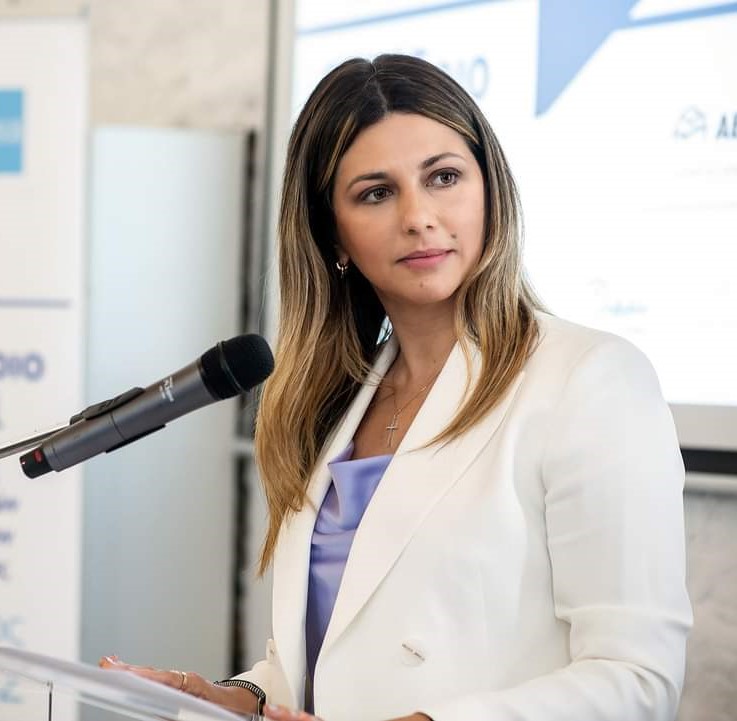
The great opportunity of the Recovery Fund:
In the years of the pandemic, the challenges for the Ministry of Tourism have changed. Safety seems to be the main factor, which all travellers consider.
“The security factor is of paramount importance, and for this, as I told you, we have taken all the measures and have used all the weapons against the pandemic,” the Deputy Minister for Tourism says.
“We are very pleased that our country won the distinction for the safest start of the 2020 tourist season by the World Travel and Tourism Organisation.
“Of course there is no room for complacency and we remain on guard against the virus and its mutations. Past experience has taught us that this virus should never be underestimated.
“As ready as we are to welcome tourists, it is expected that in some countries there is increased caution, which has to do with the assessment of their own health situation, but also the mutations of the virus, such as ‘Delta’.”
In Greece, tourism plays an important role in the Greek economy. It was almost 1/4 of GDP before the pandemic. The question is what the Ministry of Tourism will now do to contribute to development.
“Indeed the Greek economy has an increased degree of dependence on tourism. Now the top priority is recovery from the blow of the pandemic. But we also look ahead, to capitalise on the many opportunities of the post-Covid era. We are opening up to new markets, building strong alliances with our international partners, enhancing the visibility of our destinations, as well as the green and digital dimension of Greek tourism,” she explains to The Greek Herald.
“The EOT campaign “All you want is Greece” this year started earlier than ever and will last longer than ever. With advertising campaigns abroad, we proceed methodically to expand markets and extend the tourist season!
“In addition to these, however, the key to the success of Greek tourism in the new era is the factor of special forms of tourism and the emphasis on the many and different experiences of our guests in Greece.
“That is why we are taking advantage of the great opportunity of the Recovery Fund, the largest support fund of European economies created to deal with the consequences of the pandemic. Greece was one of the first countries to submit its proposal with the program “Greece 2.0” and is one of the first countries to receive approval for the program from the European Union.

“We proposed and approved infrastructure projects for targeted specific forms of tourism, such as gastronomic, agritourism, mountain, diving, climbing, wellness. In fact, alternative forms of tourism are not only pillars of sustainable development, but also bases for the lengthening of the tourist season.”
One of the timeless themes of Greece in the tourism sector has to do with services. Tourism education is Mrs Zacharaki’s area of responsibility and we asked her to inform us what the Ministry is planning.
“Our belief is that the foundation of Tourism Development is tourism education and training. Through this, the new generation of Greek tourism is being prepared, and acquires the resources to respond to new developments,” she says.
“That is why we pay special attention, both to the reform of tourist education structures, as well as to the retraining and upgrading of skills (reskilling & upskilling), with programs for 20,000 tourism workers and unemployed, for which we have also submitted proposals for funding from the Recovery Fund.
“Note that it is the first time that such a broad program of retraining and upgrading of skills in tourism will be carried out in our country… At the same time, we are working out a plan for the operation of a foreign language tourism school in Greece.”
Australia, the community and the wish of good reparation:
Borders remain closed in Australia, where lockdowns now take endemic form. With more than 330,000 travellers arriving from Australia to Greece in 2019 we asked the Deputy Minister of Tourism if they are planning for a proposal to create a safe travel bubble between the two countries.
“Australia has indeed opted for a restrictive policy on travel to all foreign countries, with the exception of its neighbour New Zealand. Each country naturally has the self-evident right to take whatever health protection measures it deems necessary, depending on its epidemiological situation,” Mrs Zacharaki says.
“As far as we are concerned, it is our constant priority to inform all countries – and especially countries of direct tourist interest – in a timely and valid manner about all the elements of the epidemiological situation in Greece, which show a steady improvement in every aspect.
“We are convinced that when Australia decides to open travel for the rest of the world, Greece should, by reasonable necessity, be part of that opening.
“Greece and Australia are also countries with strong and vibrant ties, thanks to the dynamic presence of the Greek diaspora. And our country is completely safe, and it has long been arranged to open for potential travelers from Australia, with the general conditions of entry.
“We understand that each country makes decisions for the protection of its citizens and we continue our self-evident work of communicating everywhere in the world the work done for vaccination and the safe conditions restarting tourism in Greece.”

Mrs Zaharaki also sends a message to our community through The Greek Herald.
“I know very well that for the Greeks of the diaspora the trip to our country is not just another holiday trip, but a return to the ancestral home, in our common “Ithaca”,” she says.
“And the more the kilometers of the distance, the greater the “nostos,” the irresistible desire to return to the motherland – for those who were lucky enough to be born here or even visit the Greek land – but also the desire to get to learn more about it, for those who have never come.
“I chat very often with Greek women and Greeks from Australia through social networks and follow what is happening in the Greek community with great interest for years.
“I see firsthand the deep desire and impatience to be given the green light that will allow many to travel to Greece.
“The message I want to give you is clear: Greece is safe and awaits you all, as soon as Australia allows it, to enjoy our unparalleled summer and the wonderful seasons of colours, smells and authentic experiences in Greece, but above all, to live the unique experience of reconnecting with our place, our roots, our identity.
“And then, the bitterness of these years of forced deprivation of return, will multiply the joy of reunion, with our ancestral land.
“Until then, the Greek government and all citizens, we continue the great national effort so you can return to a country that improves its infrastructure, such as the 14 upgraded regional airports that were commissioned this year, resolutely advances investments such as at “Elliniko,” positively stars in European and international developments, makes digital advancements, aims for a green and sustainable development, implements social policies for all citizens without leaving anyone behind, without discrimination and exclusion.
“In a country that does not forget expatriate Greeks. As a relative of expatriate Evrytans in America I know well what unquenchable love for the country means, impatience for the return and desire to see Greece excel.”




